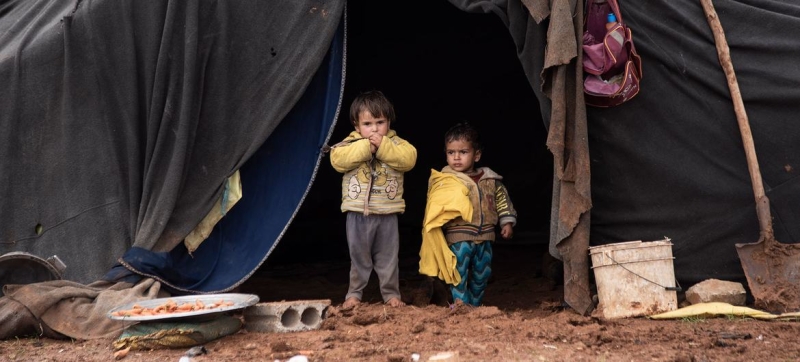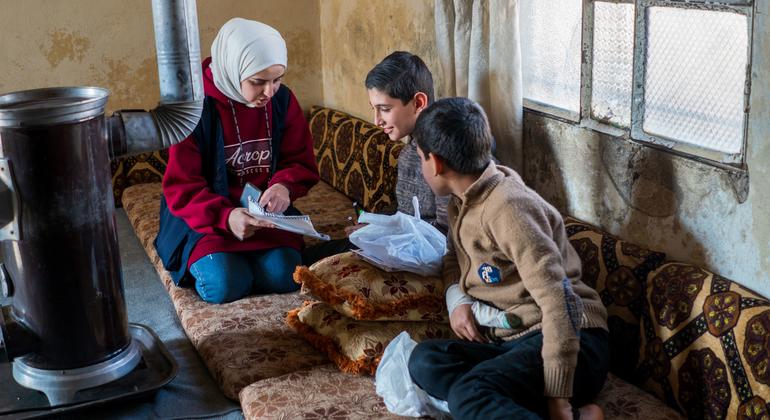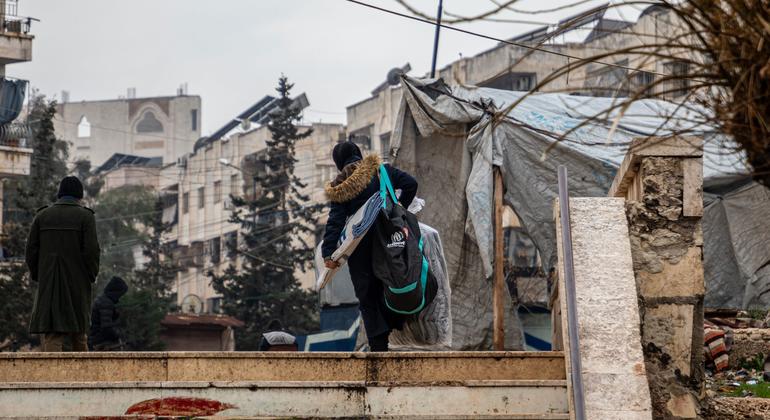
Even before the recent events, Syria was in the midst of one of the deepest humanitarian crises in the world. INTERVIEW | Hope and Persistent Threats: The Situation in Syria in the Context of Political Change Humanitarian Aid
The humanitarian situation in Syria has worsened after the recent events, but at the same time there is an atmosphere of hope in the country. This was stated in an interview with Evgenia Kleshcheva by Olga Cherevko, a communications specialist at the Office for the Coordination of Humanitarian Affairs (OCHA), who is currently in Damascus.
According to her, the UN will continue to support the people of Syria at every step in their quest to build a better future.
EK: You are now in Syria, where the government has recently changed. What is the current situation in the country, how have the humanitarian needs and priorities of the humanitarian community changed??
OC: I recently returned here to Syria, and, of course, the situation is a bit strange, but at the same time it gives a lot of hope. Absolutely everything has changed, and people, on the one hand, are cautious about changes, and on the other hand, again, there is new hope that it is possible to build a future and a strong, prosperous country.
At the same time, the humanitarian situation has worsened even more. The humanitarian crisis here was already terrible. It was one of the deepest crises in the world. Even before the recent events, about 17 million people needed humanitarian aid, 90 percent of the population lived in poverty, 13 million did not have enough food, almost half of the children did not go to school.
When the change of power began, everything became even more complicated, because there were conflicts and battles, no matter how small they were, people fled from them. There were more than a million internally displaced persons, and at the moment about 627 thousand have not yet returned home.
This complicated the situation. And everyone, of course, needs emergency support, help with food, water, food, health care, and so on. So it’s complicated, but we hope again that new opportunities will emerge.
EK: We recently received information about the threats from unexploded ordnance, especially for children. What efforts are the UN and partners making to clear territories of mines?
OC:Yes, there are many such threats. Here, probably, every day we hear that in some area someone is killed or injured. And, of course, very often the victims are children.

The UN and our partners have conducted over 500 demining operations in the last couple of weeks. But new explosive remnants of war are being found every day, and that’s a big problem.
Again, let us remember that the conflict is not quite over. We cannot say that it is over, because there are still people fighting in the north, in the northeast, in different areas. That is, the threats will remain.
EK: What can you say about the state of the humanitarian infrastructure, and are efforts being made to restore it now?
OC: Yes, of course, this is probably one of the most important points, because more than two thirds of this infrastructure was destroyed over 14 years of war. Even in the last days and weeks, there have been reports of a large number of destroyed water installations, wells, stations. There is a dam, for example, which has been out of order for about 40 days, and about half a million people have no water supply.
Overall, this is a very important point because it is not just emergency aid like food and water that is needed, but we also need to restore this infrastructure, restore basic services so that people have somewhere to return to and something to look forward to.
EK: And have there been any changes in the situation of women and girls with the new government??
OC: Many have lost their husbands and relatives, and this greatly affects their situation.
In addition, when children, including girls, do not go to school, it negatively affects the situation in society. It is important to think about all this and be sure to include girls and women in all areas of life.

EK: In general, how is the interaction with the new authorities going? And can you say something about the sanctions and how they affect the humanitarian situation?
OC:Now we are waiting to see how everything will work out. But we are working with the new government to deliver aid in accordance with humanitarian principles. We have received many positive signals, but we need to wait and see how everything will turn out. Little time has passed, so it is too early to talk. We are still trying to determine who will work with whom, who will be in what positions, and this, of course, takes time.
Read also:
Syria: a chance to emerge from darkness into light
Regarding sanctions, we have always said that they affect the delivery of humanitarian aid. And now is a very important time to consider this aspect and for the countries that impose sanctions to keep this in mind when they review them for a new term. Because this is a very fragile time when you cannot miss the moment, because if we miss it, then everything can fall apart very quickly.
EK: What did you see on the ground and what do the locals say?
OC: I haven’t left Damascus yet, but next week, for example, I’m going to Idlib, which in itself is a historic event, because we have never been able to enter it from this side. Well, in Damascus, again, there are different opinions. There are people who are worried, there are people who are very happy, there are people who can’t say anything yet, and they are waiting, like us, to see how everything will turn out. And so, of course, the atmosphere is completely different than it was before. That is, somehow everything feels less bureaucratic and more free. So we have this hope.
EK: The ceasefire agreement in Gaza was announced, do you think this will affect the humanitarian situation or the situation in Syria in general, in the region?
OC: The region is, of course, interconnected. Again, we will have to see how everything turns out, there are also many complex aspects. I cannot look into the future yet, but, as we have seen in the past, all events are interconnected. Whether it was Lebanon or Gaza or Syria, there is often a domino effect.
Overall, I want to emphasize that this is a very important moment for Syria. The Syrians are in charge of building their future, and we will support them every step of the way.
